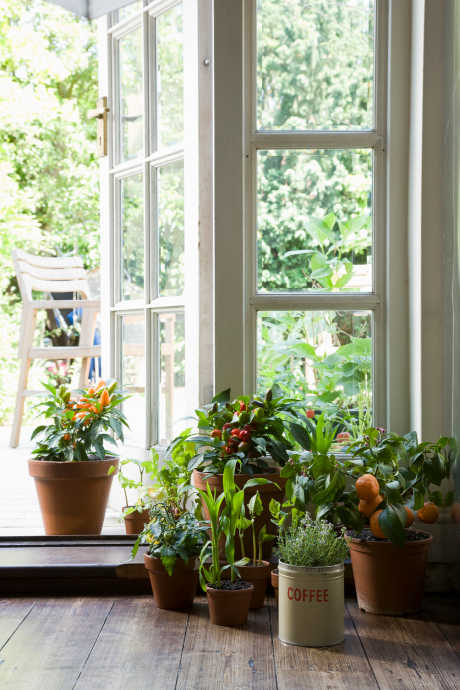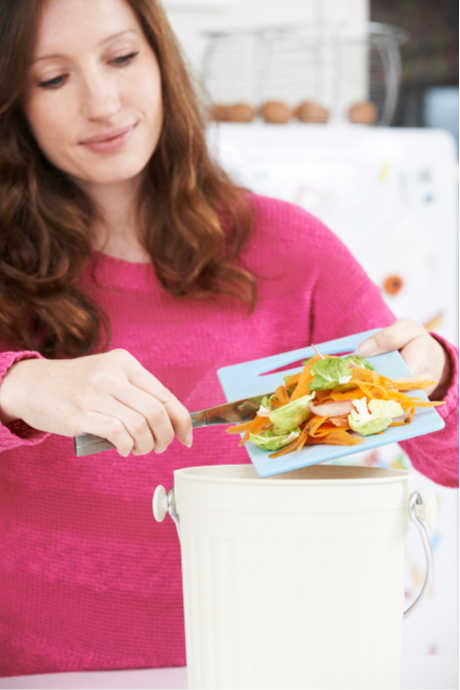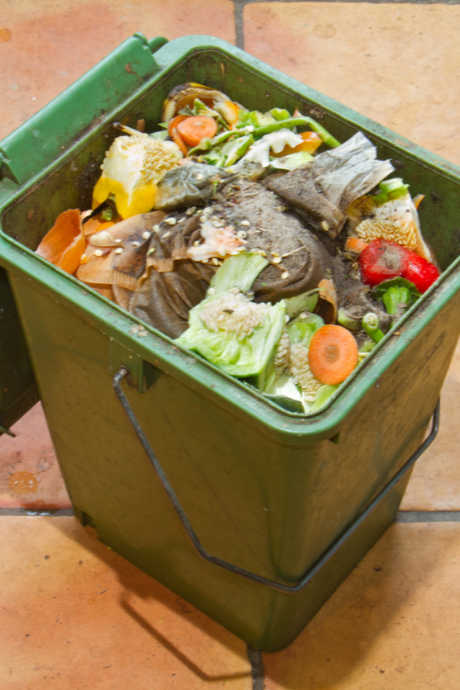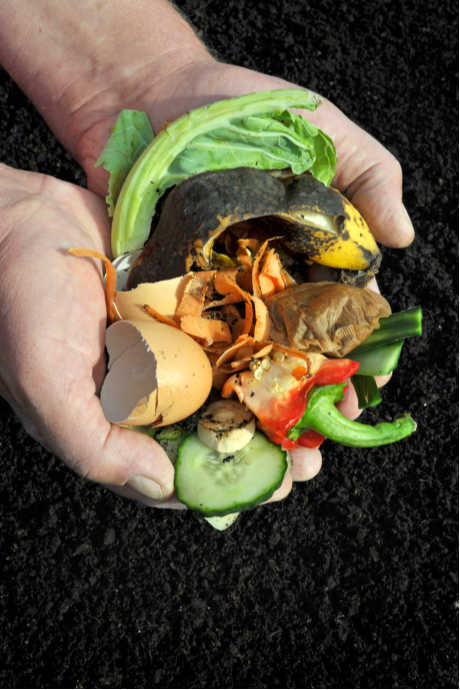How to Start Composting
Posted by Julie on Apr 4th 2019
In nearly all of our posts, we’ve focused exclusively on the preparation and enjoyment of food. But what about all the parts of food that we don’t eat? Yes, you can make chicken stock from leftover bits, but that’s only a tiny fraction of all the food waste created by a household. Instead of running it down the garbage disposal or adding it to the trash, try composting and put your food waste to work! You may be surprised to find out how easy it is start composting, and how beneficial it is for the environment.
Why Compost?
Composting has so many benefits -- for you, for your plants, for the environment -- that the question really ought to be “why aren’t you composting already?” It’s also much easier than you may think, though we’ll cover the do’s and don’ts later in this post.
Look no further than the Environmental Protection Agency’s website to see why composting is such a great idea:
- Composting improves soil quality by returning nutrients to it.
- Composting benefits plants by fertilizing without synthetic chemicals.
- Composting reduces the amount of food waste in landfills, which decreases methane emissions.
Food composting is on the rise, from 1.84M tons in 2013 to 2.1M tons in 2015. Sounds like a lot, doesn’t it? Surprisingly, those quantities only account for 5% and 5.3% of food waste, respectively. Where it comes to making better use of our kitchen scraps, we have a long way to go!

Even if the only plants you grow are houseplants, they’d love for you to add some compost to their pots. If you have a container garden on your balcony, raised garden beds in your yard, or large garden on your property, compost will come in handy in each of these cases. Live in an urban area and have a brown thumb? We’d bet there’s a community garden near you that would love some of your compost.
What Can You Compost?
Composting incorporates food waste, but that’s only one component. Compost requires equal parts green matter and brown matter, along with water to help facilitate the process. Green matter includes most food waste: fruit and vegetable peels or cores, coffee grounds, and tea leaves. Brown matter includes dead leaves, twigs, paper, and cardboard, along with food waste like eggshells and nut shells. Green matter produces nitrogen, brown matter produces carbon, and water aids in speeding up decomposition. Alternate layers of green and brown matter.

It’s important to be aware of what you shouldn’t compost: namely, any animal-based products. Don’t add meat, fish, bones, or dairy to your compost. First, if you are composting outdoors, the odor is likely to attract insects or even wildlife. Second, animal-based products undergo decomposition in a different way. While plant-based waste is broken down by aerobic bacteria, anaerobic bacteria go to work on animal-based waste. Their presence can slow down the composting process.
Finally, although fruits and vegetables are ideal for composting, keep in mind that some items (like onions and garlic) have a strong odor. Have some brown matter ready to cover them and help contain the odor, especially when composting indoors. Likewise, watery items (like melons, cucumbers, and tomatoes) will need some extra brown matter to help absorb the liquid and keep your compost in balance.
Best Practices for Composting
While you might think composting is limited to the outdoors, don’t discount indoor composting. Indoor temperatures and humidity don’t vary nearly as much as they do outdoors, which helps you better control the proportions of green matter, brown matter, and moisture.
Choose your containers based on the space you have available. A countertop bin is ideal for holding a day’s worth of scraps before adding them to your primary compost container. Many bins even use charcoal filters to minimize odor.
Your primary compost container might be outdoors, or you could keep a smaller one in a closet or pantry. We love this suggestion from The Spruce to use a five-gallon bucket, which is perfect for apartment-dwellers. If you have the space, consider an 18-gallon plastic storage tote, kept in a corner of your basement or even in the garage. Either way, you’ll need to drill aeration holes into the lid and sides and bottom of your container. Be sure to put a tray underneath to catch any excess liquid.

Keep a hand trowel nearby to turn your compost on a regular basis (at least weekly). Remember that composting is driven by aerobic bacteria, which means they need oxygen. Turning your compost ensures the brown matter and green matter receive plenty of air to keep the process going. Similarly, watch the moisture level of your compost and add water as necessary. Bob Vila likens the proper moisture of compost to a “wrung-out sponge” -- damp, but not dripping.
When you add green matter to your compost container, have some brown matter ready to add too. If you have a yard with trees, dead leaves are an ideal option. Otherwise, shred some paper or tear up some cardboard. Keeping the nitrogen and carbon in balance will not only speed up composting, it will reduce the odor from green matter. Exposed green matter is also likely to attract fruit flies, and you want to avoid an infestation of those pests.
Finally, take the time to slice and dice your fruit and vegetable peels, rinds, and cores before adding them to your compost container. The smaller the bits of green matter, the quicker they will turn into compost.
What Do You Do With Compost?
We already mentioned a few general uses of compost in our reasons for why you ought to try composting. Whether you grow houseplants, enjoy container gardening, or have a quarter-acre plot devoted to homegrown vegetables and berries, each of these will benefit from a sprinkling of compost. Even if all you grow is grass, your lawn would love an occasional compost treat. Combine compost with potting soil to fill planters and raised beds, or use it as mulch in your garden. You can even dilute the runoff from your compost container and use it to spray the leaves of your plants.

Whether you use your compost or give it away, know that you're making a positive impact on the environment by composting. You're keeping food waste out of landfills, reducing methane emissions, and returning key nutrients back to the soil.
 Free shipping over $49
Free shipping over $49










